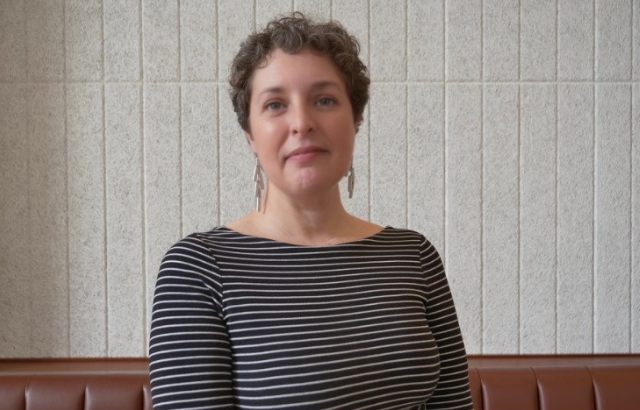Celebrating International Day of Immunology: Q&A with Professor Sian Henson
International Day of Immunology, observed annually on April 29, is dedicated to increasing global awareness of the importance of immunology for health and wellbeing. This year's theme is focused on the science of ageing and immunology.
To mark the day we spoke to Sian Henson, Professor in Immunology at the Centre for Translational Medicine and Therapeutics, William Harvey Research Institute, Queen Mary University of London.

Professor Sian Henson
What sparked your interest in immunology and ageing, particularly in relation to T cell metabolism?
I’ve always been fascinated by the immune system, how it responds to the right things, killing them and not the whole body, as well as it’s incredible versatility with cells assuming different roles and functions throughout their lifespan. My first introduction to senescence and ageing came during my PhD, which involved investigating how parasitic nematodes evade the host immune system. I noticed that when the nematodes were repeatedly passaged they lost their virulence and their numbers greatly reduced. This then led me into senescence themed post-docs and eventually a fellowship funded by Help the aged. It was during my fellowship that I heard a talk by Erika Pearce, I was struggling to understand some data I had and her talk about how T cell metabolism governs function explained it perfectly. As happens often in science, your data leads you to new ways of thinking, it was my data that convinced me I was working on metabolic regulations of immune ageing, and I still am today.
Can you expand on the concept of "inflammaging" and its importance in understanding age-related health outcomes?
Inflammation is a general feature of ageing and aged tissues, so much so that we’ve termed it inflammaging. There are multiple causes of inflammaging, senescence being one of them. The type of inflammation that's caused by senescent cells has been called sterile inflammation. This meant that there's no evidence of a pathogen but the immune cells are there and these immune cells are destructive. The senescent cells attract immune cells which respond by secreting toxic molecules which attract more immune infiltration eventually leading to an inflammatory response. Over time, the persistent activation of immune cells and the release of inflammatory mediators damages the bodies tissues and organs as well as the ability to repair the damage, contributing to the pathogenesis of age-related diseases.
Your research has highlighted the role of inhibitory receptors in ageing. How do these receptors influence the immune response in older individuals?
The immune system is a delicate balance between immune activation and downregulation of immune responses. Any perturbation away from this equilibrium has the potential to cause inflammatory disease, autoimmunity and the loss of protection from infection and cancers. So the immune system has to have tight control on immune function. This is achieved through stimulatory and inhibitory receptor expression. With ageing, there is an increase in inhibitory receptor expression, which leads to decreased immune surveillance and an increased susceptibility to infections and cancer. Additionally, excessive activation of inhibitory pathways can contribute to sustained inflammation, promoting tissue damage and increasing the risk of age-related diseases.
How do metabolic changes in T cells contribute to the maintenance of chronic inflammation in ageing populations?
A defining feature of senescent T cells is the production of a set of inflammatory mediators that we term the senescence associated phenotype or the SASP for short. The production of these inflammatory factors requires a lot of energy. However, the mitochondria which are the main power houses of cells, become dysfunction leading to impaired mitochondrial respiration, and increased production of damaging reactive oxygen species. These mitochondrial changes cause senescent T cells to become glycolytic, further enhancing the SASP and chronic inflammation.
What potential implications does your research have for the development of interventions or therapies aimed at mitigating age-related immune dysfunction?
The aim of most researchers in the ageing field is to improve health-span, as people often live the last years of their life in ill health. There has been great interest in recent years in repurposing existing drugs that target metabolism to treat numerous diseases including ageing. One notable example is the TAME trial (Targeting Aging with Metformin), which aims to evaluate the potential of metformin in slowing down ageing processes in humans. Despite its inception in 2013, the TAME trial has only recently commenced. Highlighting the difficulties in running GeroScience trials where the outcome is to target mechanisms of ageing to delay the onset of age-related diseases. If we are to achieve this aim, then we need research into basic T cell biology to determine how to target the detrimental inflammatory pathways while retaining the key functions of a T cell. This is what my groups is trying to do by studying the metabolic changes that occur to T cells during human ageing.
What are some of the most pressing challenges that need to be addressed to improve immune health in ageing populations?
In my opinion, I think we need to address how to make any future anti-ageing medicines accessible to all. Countries that have high numbers of older individuals are already having these conversations, the Centre for Healthy Longevity in Singapore is already discussing the affordability of anti-ageing medicine with its citizens. The current market in anti-ageing products is providing a glimpse of the ethical problems to come and I worry that existing health inequalities will only be exacerbated. Such changes hold considerable potential for social conflict, but the economic well-being would be astronomical. I think the UK should also be asking individuals how much they would be willing to pay to improve their health.